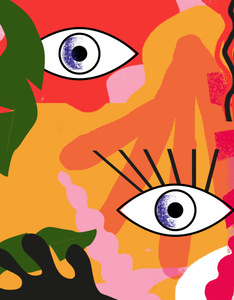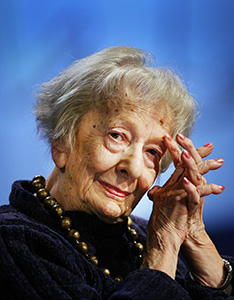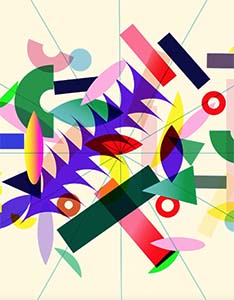“Chopin Residue” – an interdisciplinary project deconstructing Chopin’s music

“Chopin Residue” is an interdisciplinary project exploring the physical and conceptual boundaries of sound through a process of mechanical deconstruction. It was created under the artistic and musical direction of Mariusz Szypura. The starting point was the reinterpretation of selected compositions by Fryderyk Chopin, transformed into experimental audio pieces emphasising texture, fragmentation, and abstraction. The results of these efforts will be revealed on 28 November 2025, when the album Chopin Residue is released. The project is organised in partnership with the Adam Mickiewicz Institute.
“Chopin Residue” – artistic deconstruction of classical music in the post-music era
At the heart of the “Chopin Residue” project lies the reinterpretation of Fryderyk Chopin’s works through processes of deconstruction, abstraction, and re-reading. These are not ordinary remixes or arrangements – the pieces have been stripped of the sounds of the piano, Chopin’s iconic instrument, to reveal what lies beneath the surface: tonal fragments, harmonic residue, and hidden emotional tensions. Sonically, the project moves at the intersection of experimental music, electronica, ambient guitar landscapes, free improvisation, and post-jazz sensibilities.
The musical approach, shaped under the direction of Mariusz Szypura, reflects the diverse experiences of artists such as Adrian Utley (Portishead), Lee Ranaldo (Sonic Youth), David Pajo (Slint, Papa M), Joey Waronker (Atoms for Peace, Beck), Gail Ann Dorsey (David Bowie), John McEntire (Tortoise), John Stanier (Battles), Jim O’Rourke, as well as representatives of the new generation, including Masayoshi Fujita and Zoh Amba. Each artist contributes their own musical language, entering into dialogue not only with Chopin’s legacy but also with the material transformations imposed by the project’s conceptual framework. Their approaches range from minimalist, unsettling spaces to full-scale abstraction; from layered guitar textures to fragmented rhythmic structures. There are no limitations here – except one shared principle: to work with what remains of Chopin.
Chopin without the piano: the art of sound transformation performed by international artists
The processed material forms the basis of the two-part album “Chopin Residue”. Its two sections – “Deconstructions” and “Reworks” – present distinct yet interrelated approaches to musical transformation:
-
“Deconstructions” – newly arranged versions of Chopin’s works, created by the artists participating in the project. By manipulating texture, rhythm, and atmosphere, they offer fresh and often surprising perspectives on familiar material.
-
“Reworks” – compositions that move far beyond the source material, in which deconstructed recordings become the raw substance for entirely new pieces containing only faint echoes of the originals.
The album is designed to be experienced both sequentially – one disc after the other – and simultaneously, by playing both parts at once. Listeners are invited to play the two albums concurrently, on turntables or digital devices, to create evolving, multi-layered soundscapes that mirror the spatial and temporal complexity of the installation.
“Chopin Residue” – tracks and performers:
-
Prelude Op. 28 No. 22 – Lee Ranaldo, Zoh Amba
-
Etude Op. 25 No. 12 – Joey Waronker, Lee Ranaldo, Justin Meldal-Johnsen, Charlie Draper, Miłosz Pękala
-
Lullaby Op. 57 – John McEntire, Blanket Swimming, Miłosz Pękala, Jacek Gawłowski
-
Prelude Op. 28 No. 20 – Charlie Draper
-
Prelude Op. 28 No. 4 – Adrian Utley, Joey Waronker, Carolina Eyck
-
Prelude Op. 28 No. 2 – John Stanier, Sugar Yoshinaga, Charlie Draper
-
Nocturne Op. 72 No. 1 – Gail Ann Dorsey, Adrian Utley, John McEntire, Nailah Hunter, Peter Pichler, Miłosz Pękala
-
Prelude Op. 28 No. 9 – David Pajo, Zoh Amba, Nailah Hunter, Miłosz Pękala
-
Prelude Op. 28 No. 15 – Lee Ranaldo, John Stanier, Miłosz Pękala
-
Prelude Op. 28 No. 22 – Matthew Herbert’s Practice Dub
-
Etude Op. 25 No. 12 – Rework – Adrian Utley
-
Lullaby Op. 57 – Rework – Fennesz
-
Prelude Op. 28 No. 20 – Rework – Masayoshi Fujita
-
Prelude Op. 28 No. 4 – Rework – Sean O’Hagan
-
Prelude Op. 28 No. 2 – Rework – Jim O’Rourke
-
Nocturne Op. 72 No. 1 – Rework – Christine Ott
-
Prelude Op. 28 No. 9 – Rework – Benoît Pioulard
-
Prelude Op. 28 No. 15 – Rework – Abul Mogard
Deconstruction, abstraction, emotion – Mariusz Szypura’s project “Chopin Residue”
The project also includes an intermedia installation combining sculptural panels, film, and turntables playing cut records, accompanied by light and laser projections. Together, they create a multisensory, dynamic environment in which sound, image, and object interact. The reinterpretations were hand-cut onto 81 vinyl records, and the entire process was documented on video. The spiral vinyl shavings – produced by engraving grooves directly onto blank records with a heated stylus – were collected and transformed into large-format visual compositions. Mounted on 2×2-metre panels, they offer a tangible record of the physical transformation of sound, making it not only audible but also visible and tactile.
Through precise technical execution and careful integration of media, the “Chopin Residue” project presents the act of destruction not as an end, but as a catalyst for new forms of artistic expression, questioning traditional notions of music, heritage, and materiality. It proposes a new way of engaging with musical heritage – not through preservation, but through transformation. By deconstructing and reassembling Chopin’s music, the project invites the listener to focus on what remains – and what may emerge – when the centre is deliberately removed. It tells a story about what music becomes after the destruction of form, and what emotions persist in its remnants.
Information about the album “Chopin Residue” – premiere on 28 November 2025
-
Release date: 28 November 2025
-
Source music: Fryderyk Chopin
-
Artistic direction, graphic design, mixing, and production: Mariusz Szypura
-
Mastering: Jacek Gawłowski (JG Master Lab)
-
Label: Black Element Label in collaboration with Unsound & Sound and Vision Art Foundation
-
Artists: Mariusz Szypura (beats, bass, guitars, keyboards, synthesizers), Lee Ranaldo (guitars, acoustic guitar, bowed guitar, tenor guitar), Zoh Amba (saxophone), Joey Waronker (drums, percussion), Justin Meldal-Johnsen (bass), Charlie Draper (ondes Martenot, theremin), Miłosz Pękala (vibraphone, marimba, triangle, cabasa, shaker, toys, shells, kanjira, handpan), John McEntire (drums, vibraphone), Blanket Swimming (ambient sounds), Jacek Gawłowski (guitar), Adrian Utley (guitars, rework), Carolina Eyck (theremin), John Stanier (drums), Sugar Yoshinaga (guitars), Gail Ann Dorsey (bass), Nailah Hunter (harp), Peter Pichler (trautonium), David Pajo (guitar), as well as Matthew Herbert, Christian Fennesz, Masayoshi Fujita, Sean O’Hagan, Jim O’Rourke, Christine Ott, Benoît Pioulard and Abul Mogard (all – rework).
-
The project is organised in partnership with the Adam Mickiewicz Institute.


